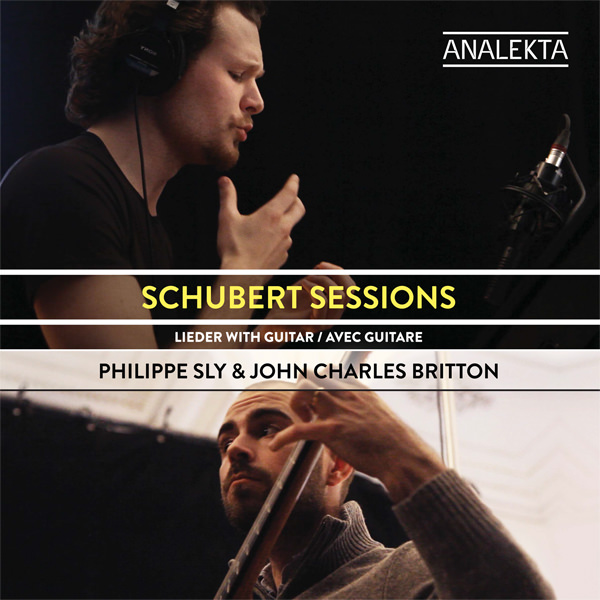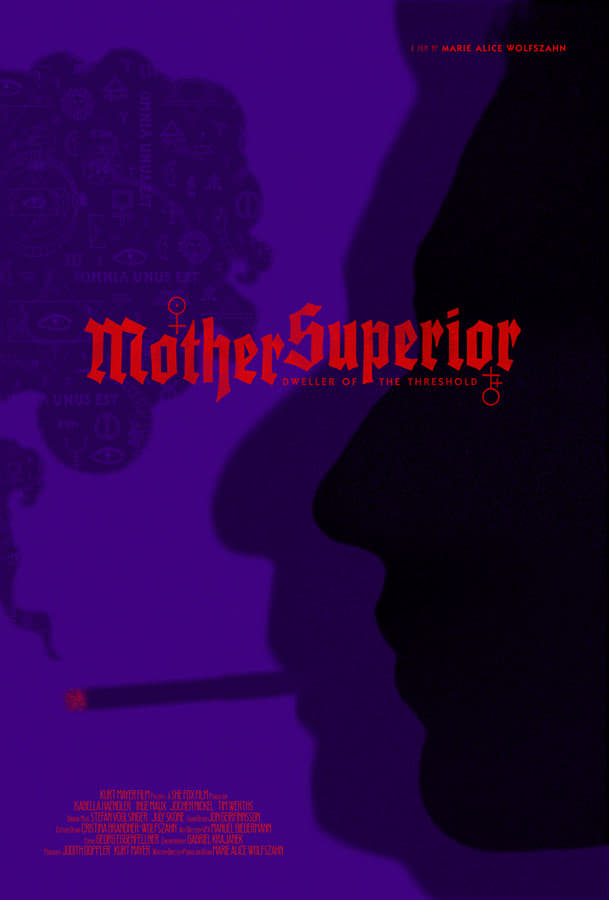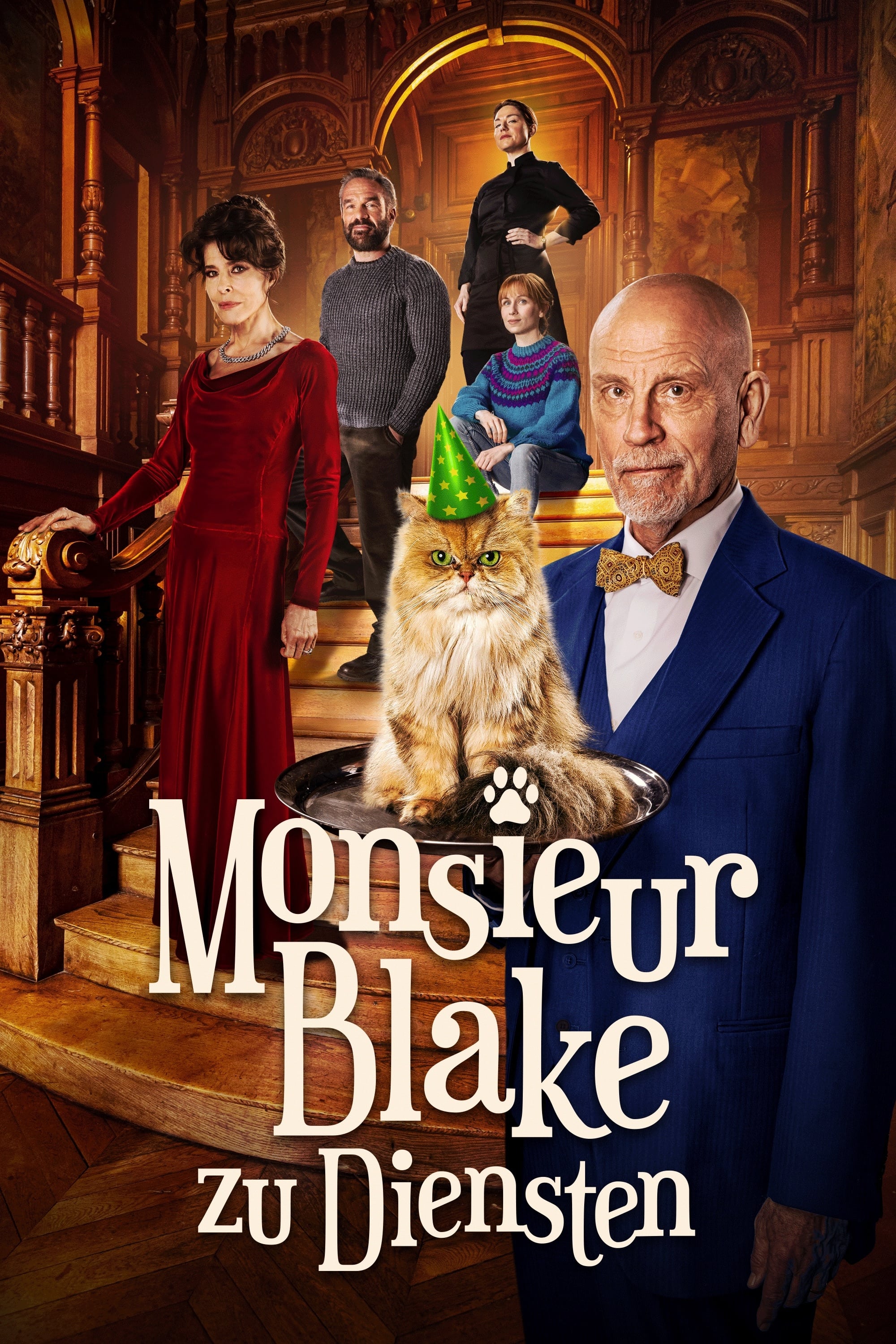
Schubert Sessions – Lieder with guitar – Philippe Sly, John Charles Britton (2016)
FLAC (tracks) 24-bit/192 kHz | Time – 59:20 minutes | 1,99 GB | Genre: Classical
Studio Master, Official Digital Download – Source: analekta.com | Booklet, Front Cover | © Analekta
Recorded: January 2016 at the St-Augustin-de-Mirabel Church, Québec
A shy, modest genius, Franz Peter Schubert never held an official musical position, unlike his contemporaries. Living frugally, surrounded by friends from the artistic and literary worlds, Schubert was the focal point of occasional informal artistic gatherings dubbed “Schubertiades”. These meetings were an occasion for him to show off his most recent compositions, foremost among them his lieder. Many of these – he wrote over 600 in all – may very well have taken shape at the guitar; Schubert learned to play the instrument early on in life, and he owned several instruments, which he would play before breakfast, occasionally honouring the impromptu visit of a friend with the performance of a freshly composed lied. Schubert’s financial situation meant he could not afford a piano, so the guitar was one way he could hear how his compositions sounded. Since at the time, the instrument enjoyed great popularity, many music publishers, including Schubert’s publisher Diabelli, offered transcriptions of his works for guitar. It is unsurprising, then, that the first edition of the lieder cycle Die Schöne Müllerin – from which Der Müller und der Bach on this recording is taken – was published with a guitar accompaniment. Uncontestably a master of the lied, Schubert may also be considered as one of the forefathers of the modern song. From the time of Ars nova (new art) – the 14th century musical style of which the poet and musician Guillaume de Machaut was among the principal proponents – lyric forms underwent numerous poetical and stylistic innovations that ultimately led to the first strophic songs for solo voice in the early 16th century. Gradually, lyric forms from the age of the troubadour – when the lute, cousin of the guitar, was a preferred means of expression – converged into the German lied.
This meeting of Philippe Sly and guitarist John Charles Britton (who made the arrangements for this recording) is defi nitely not coincidence. Collaborators for a number of years, the two artists see these Schubert Sessions as a way to broaden and heighten Schubert’s place in popular culture, in particular in terms of his infl uence on modern popular song. The recording also fulfills a need to revisit these lyric masterpieces in a form that emphasizes not only their idiom (many of these pieces, including Wohin? and Auf Dem Wasser zu singen, exhibit writing that is more guitaristic than pianistic) but their polymorphic essence. A seemingly simple task, yet a daring one: to present, in its most natural form, a collection of pieces whose expressiveness allows them to fly free of basic principles, or to avoid a certain dogmatism – fictional or real – present in the world of classical music. It would be impossible to conclude without mentioning friendship, a value dear to Schubert’s heart that Sly and Britton also share. Compared with the piano, the guitar gives the accompanist greater proximity to the singer. This artistic rapport will be even more perceptible to the attentive listener. The composer Albert Stadler wrote about his friend Schubert: “If Schubert was with us, we shut him in the ‘Kamerate’ [living room and study] during this time, gave him a few scraps of manuscript paper, and any volume of poetry which happened to be at hand, so that he could while away the time. When we returned from church there was usually something fi nished, and this he gladly let me have… He faithfully brought us what he composed at home, and we rushed, with or without him, to a far-off room that had a pianoforte – we were enthusiastic and admiring. And when we expressed our feelings thus, he sat quietly at the instrument, smiled, or told a joke. But he was nevertheless pleased that we had understood him.”* This last sentence alone conveys the breadth of sensitivity and generosity that was Schubert’s genius. © Claudio Pinto
Tracklist:
Franz Schubert (1797-1828)
1 Auf dem Wasser zu singen, Op. 72, D. 774 03:34
2 Alinde, Op. 81, No. 1, D. 904 04:27
3 Du bist die Ruh, Op. 59, No. 3, D. 776 03:57
4 An Sylvia, Op. 106, No. 4, D. 891 03:15
5 Erlkönig, Op. 1, D. 328 04:32
6 An die Musik, Op. 88, No. 4, D. 547 02:30
7 Ständchen, D. 957, No. 4 03:41
8 Wohin?, Op. 25, No. 2, D. 795 02:20
9 Der Müller und der Bach, Op. 25, No. 19, D. 795 03:50
10 Der Leiermann, Op. 89, No. 24, D. 911 03:32
11 Der Doppelgänger, D. 957 No. 13 03:21
12 Der Lindenbaum, Op. 89, No. 5, D. 911 04:52
13 Der Jüngling an der Quelle, D. 300 02:29
14 Du liebst mich nicht, Op. 59, No. 1, D. 756b 03:13
15 Des Fischers Liebesglück, D. 933 06:55
16 Der Tod und das Mädchen, Op. 7, No. 3, D. 531 02:52
Personnel:
Philippe Sly, vocals (bass-baritone)
John Charles Britton, guitar
Download:
mqs.link_SchubertSessinsLiederwithguitarPhilippeSlyJhnCharlesBrittn2016Analekta24192.part1.rar
mqs.link_SchubertSessinsLiederwithguitarPhilippeSlyJhnCharlesBrittn2016Analekta24192.part2.rar
mqs.link_SchubertSessinsLiederwithguitarPhilippeSlyJhnCharlesBrittn2016Analekta24192.part3.rar










![Daniel Barenboim - Mendelssohn: Lieder ohne Worte (1979/2018) [FLAC 24bit/96kHz] Daniel Barenboim - Mendelssohn: Lieder ohne Worte (1979/2018) [FLAC 24bit/96kHz]](https://getimg.link/images/imgimgimg/uploads/2019/04/S9W90go.jpg)
![Christa Ludwig - The Complete Recitals on Warner Classics (2018) [FLAC 24bit/96kHz] Christa Ludwig - The Complete Recitals on Warner Classics (2018) [FLAC 24bit/96kHz]](https://getimg.link/images/imgimgimg/uploads/2019/11/YgyJkue.jpg)
![Andras Schiff - Beethoven: Diabelli-Variationen, Op. 120 (2013) [HDTracks FLAC 24bit/44,1kHz] Andras Schiff - Beethoven: Diabelli-Variationen, Op. 120 (2013) [HDTracks FLAC 24bit/44,1kHz]](https://getimg.link/images/imgimgimg/uploads/2017/02/Zuaqo6e.jpg)
![Philippe Herreweghe & Collegium Vocale Gent - Bach: Motetten (2011) [Qobuz FLAC 24bit/44,1kHz] Philippe Herreweghe & Collegium Vocale Gent - Bach: Motetten (2011) [Qobuz FLAC 24bit/44,1kHz]](https://getimg.link/images/imgimgimg/uploads/2019/07/9cXYupj.jpg)
![Barbara Hannigan & Reinbert de Leeuw - Vienna: Fin de Siecle (2018) [FLAC 24bit/96kHz] Barbara Hannigan & Reinbert de Leeuw - Vienna: Fin de Siecle (2018) [FLAC 24bit/96kHz]](https://getimg.link/images/imgimgimg/uploads/2019/04/1s40wrp.jpg)
![Pacifica Quartet - Dmitri Shostakovich and his Contemporaries: The Soviet Experience Vol. 1-4 (2011-2013) [24bit FLAC] Pacifica Quartet - Dmitri Shostakovich and his Contemporaries: The Soviet Experience Vol. 1-4 (2011-2013) [24bit FLAC]](https://getimg.link/images/imgimgimg/uploads/2017/07/ntIbtOp.jpg)
![Christian Elsner, Rundfunk-Sinfonieorchester Berlin, Marek Janowski - Schubert; Lieder (2015) [DSF DSD64/2.82MHz] Christian Elsner, Rundfunk-Sinfonieorchester Berlin, Marek Janowski - Schubert; Lieder (2015) [DSF DSD64/2.82MHz]](https://getimg.link/images/imgimgimg/uploads/2019/01/blhZnbj.jpg)
![Sophie Karthauser & Eugene Asti - Hugo Wolf: Kennst du das Land (2016) [Qobuz FLAC 24bit/96kHz] Sophie Karthauser & Eugene Asti - Hugo Wolf: Kennst du das Land (2016) [Qobuz FLAC 24bit/96kHz]](https://getimg.link/images/imgimgimg/uploads/2018/09/LjyNoeT.jpg)
![Michael Tilson Thomas, The San Francisco Symphony - The Mahler Project (2010) [FLAC 24bit/96kHz] Michael Tilson Thomas, The San Francisco Symphony - The Mahler Project (2010) [FLAC 24bit/96kHz]](https://getimg.link/images/imgimgimg/uploads/2017/01/HHDTsz0.jpg)
![Louise Alder & Joseph Middleton - Richard Strauss: Through Life & Love (2017) [FLAC 24bit/96kHz] Louise Alder & Joseph Middleton - Richard Strauss: Through Life & Love (2017) [FLAC 24bit/96kHz]](https://getimg.link/images/imgimgimg/uploads/2017/11/iaIFZAY.jpg)
![Augustin Hadelich & Joyce Yang - Franck, Kurtag, Previn & Schumann: Music for Violin & Piano (2016) [FLAC 24bit/96kHz] Augustin Hadelich & Joyce Yang - Franck, Kurtag, Previn & Schumann: Music for Violin & Piano (2016) [FLAC 24bit/96kHz]](https://getimg.link/images/imgimgimg/uploads/2018/08/qwTfJRM.jpg)
![Matthias Goerne - Hanns Eisler: Ernste Gesange, Lieder with piano (2013) [Qobuz FLAC 24bit/96kHz] Matthias Goerne - Hanns Eisler: Ernste Gesange, Lieder with piano (2013) [Qobuz FLAC 24bit/96kHz]](https://getimg.link/images/imgimgimg/uploads/2018/05/y4R5Upx.jpg)
![Arnold Schoenberg: Complete Songs, Vol. 2 - Glenn Gould (1972/2015) [Qobuz FLAC 24bit/44,1kHz] Arnold Schoenberg: Complete Songs, Vol. 2 - Glenn Gould (1972/2015) [Qobuz FLAC 24bit/44,1kHz]](https://getimg.link/images/imgimgimg/uploads/2016/10/sqLmuW2.jpg)
![Gunther Groissbock & Gerold Huber - Herz-Tod (2018) [FLAC 24bit/96kHz] Gunther Groissbock & Gerold Huber - Herz-Tod (2018) [FLAC 24bit/96kHz]](https://getimg.link/images/imgimgimg/uploads/2018/09/Y7yy2La.jpg)
![Elisabeth Schwarzkopf & Wilhelm Furtwangler - Hugo Wolf Recital - Salzburg, 12/08/1953 (Mono Remastered) (1969/2019) [FLAC 24bit/96kHz] Elisabeth Schwarzkopf & Wilhelm Furtwangler - Hugo Wolf Recital - Salzburg, 12/08/1953 (Mono Remastered) (1969/2019) [FLAC 24bit/96kHz]](https://getimg.link/images/imgimgimg/uploads/2019/12/s40o0aE.jpg)